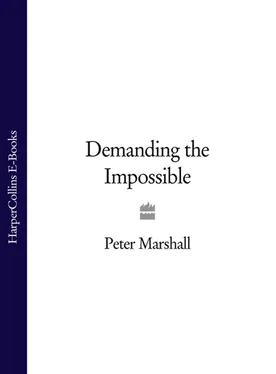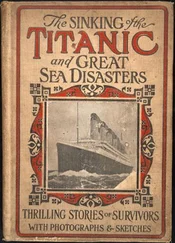Godwin, for instance, believed that humanity had a common nature and advocated sexual and racial equality, but did not think all people should be treated equally. By defining justice as utility and linking it with the principle of impartiality, he maintained that we should give preferential treatment to those most likely to increase human happiness: in a fire where I could only save one person, I should save a benevolent philosopher who might contribute to the happiness of thousands before his vicious maid, even if she happened to my mother.
Proudhon, on the other hand, accepted that men and women had equal rights and duties, but he believed that ‘if one compares sex with sex, women are inferior’. 64 His notion of justice involved the idea of equality of respect, but his insistence on exchange of equal shares based on labour time meant that he tolerated economic inequality. One of his principal criticisms of authoritarian communism is that it would produce an equality of slaves. The individualist Tucker was even more willing to countenance economic inequalities which might result from the superiority of muscle or brain. As for the ‘beautiful world’ in which absolute equality had been achieved, ‘who would live in it?’, he asks. ‘Certainly no freeman’. 65
Bakunin had an entirely different approach. He asserted that all humanity was physically and socially equal, and insisted that since man is truly free only among equally free men, the ‘ freedom of each is therefore realizable only in the equality of all. The realization of freedom through equality, in principle and in fact, is justice. ’ 66 Yet by retaining a collectivist system of distribution according to work done he endorsed like Proudhon economic inequality.
Kropotkin went one step further than Bakunin. He shared his belief in human equality but adopted a communist definition of justice: from each according to ability, to each according to need. Clearly this is also an unequal principle, since under a system of voluntary communism the distribution of burdens and rewards will depend on different abilities and needs. In practice, the communist idea of just distribution according to need is more concerned with fair shares than equal shares.
Malatesta was a communist like Kropotkin, but he tried to bring equality and freedom together in his definition of social freedom as ‘equal freedom for all, an equality of conditions such as to allow everybody to do as they wish, with the only limitation, imposed by inevitable natural necessities and the equal freedom of others’. 67 More recently, Bookchin has been inspired by the concept of the ‘irreducible minimum’ practised by organic societies in which everyone has their basic needs satisfied. He also calls for an ‘equality of unequals’ which recognizes differences between human beings within an overall framework of social equality and economic communism.
In general, anarchists see no contradiction between freedom and equality, but believe that one reinforces the other. Over the last two centuries, they have extended the principle of equality to embrace all humanity. At the same time, their concern with individuality has prevented them from calling for absolute economic equality. While advocating the impartial consideration of everyone’s worth and need, they do not insist on equal treatment and equal shares. They would accept John Rawls’ principle in his definition of justice as fairness that each person has ‘an equal right to the most extensive liberty compatible with a like liberty for all’, although they would add the proviso that any inequalities in a free society would ideally be the result of voluntary agreement. 68 But they go beyond Rawls who believes that citizens of a country do not object to there being different offices of government. Because they adopt a principle of justice that everyone has an equal claim to a maximum of freedom they reject all political authority as an illegitimate interference with freedom. As Tucker put it, they seek the ‘greatest amount of liberty compatible with equality of liberty’. 69
PART TWO Forerunners of Anarchism
Love, and do what you will.
ST AUGUSTINE
All men have stood for freedom … For freedom is the man that will turn the world upside down.
GERHARD WINSTANLEY
In vain you tell me that Artificial Government is good, but that I fall out with the Abuse. The Thing! The Thing itself is the Abuse!
EDMUND BURKE
Society is produced by our wants, and government by our wickedness; the former promotes our happiness positively by uniting our affections, the latter negatively by restraining our vices. The one encourages intercourse, the other creates distinctions. The first is patron, the last a punisher.
Society in every state is a blessing, but government even in its best state is but a necessary evil; in its worse state an intolerable one.
THOMAS PAINE
4 Taoism and Buddhism
Taoism
ANARCHISM IS USUALLY CONSIDERED a recent, Western phenomenon, but its roots reach deep in the ancient civilizations of the East. The first clear expression of an anarchist sensibility may be traced back to the Taoists in ancient China from about the sixth century BC. Indeed, the principal Taoist work, the Tao te ching , may be considered one of the greatest anarchist classics. 1
The Taoists at the time were living in a feudal society in which law was becoming codified and government increasingly centralized and bureaucratic. Confucius was the chief spokesman of the legalistic school supporting these developments, and called for a social hierarchy in which every citizen knew his place. The Taoists for their part rejected government and believed that all could live in natural and spontaneous harmony. The conflict between those who wish to interfere and those who believe that things flourish best when left alone has continued ever since.
The Taoists and the Confucians were both embedded in ancient Chinese culture. They shared a similar view of nature, but differed strongly in their moral and political views. They both had an attitude of respectful trust to human nature; the Christian notion of original sin is entirely absent from their thought. Both believed that human beings have an innate predisposition to goodness which is revealed in the instinctive reaction of anyone who sees a child falling into a well. Both claimed to defend the Tao or the way of the ancients and sought to establish voluntary order.
But whereas the Taoists were principally interested in nature and identified with it, the Confucians were more worldly-minded and concerned with reforming society. The Confucians celebrated traditionally ‘male’ virtues like duty, discipline and obedience, while the Taoists promoted the ‘female’ values of receptivity and passivity.
Although it has helped shape Chinese culture as much as Buddhism and Confucianism, Taoism by its very nature never became an official cult. It has remained a permanent strain in Chinese thought. Its roots lay in the popular culture at the dawn of Chinese civilization but it emerged in the sixth century BC as a remarkable combination of philosophy, religion, proto-science and magic.
The principal exponent of Taoism is taken to be Lao Tzu, meaning ‘Old Philosopher’. His year of birth was some time between 600 and 300 BC. He was probably of a noble family in Honan province. He rejected his hereditary position as a noble and became a curator of the royal library at Loh. All his life he followed the path of silence—‘The Tao that can be told is not the eternal Tao’, he taught. 2 According to legend, when he was riding off into the desert to die, he was persuaded by a gatekeeper in north-western China to write down his teaching for posterity.
Читать дальше












